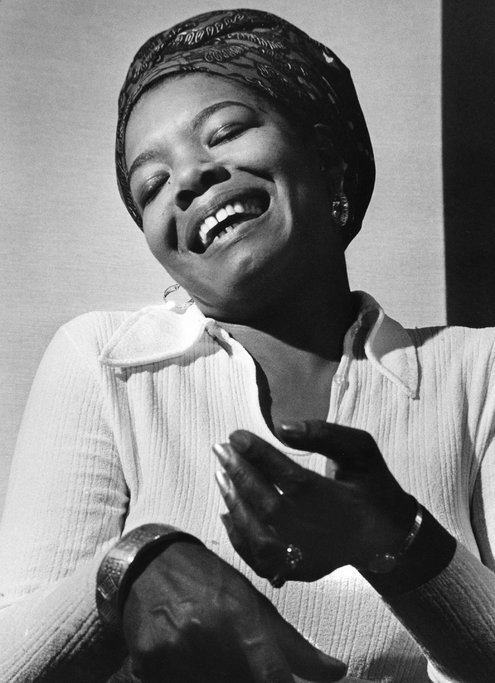What Maya Angelou Meant to Me
The news of Maya Angelou’s death arrived with the abruptness of a great twister — violent, without warning, tearing things up and flipping things over.
I ached the way the soul aches in the world when a great soul is lost from it.
I have a group of writers I call my literary mothers and fathers: Alice Walker and James Baldwin and Toni Morrison and Alex Haley and Gwendolyn Brooks and Langston Hughes. And yes, Maya Angelou.
This is not because I knew them, but rather because, through their words, they have nurtured me, inculcating in me a sense of myself that sustains me. They helped me to see myself and love myself when I felt least seen and least loved.
They saved me.
So this is the scale of the loss for me, a disbelieving, bending-over-at-the-waist kind of loss, the kind where the eyes grow misty and the breath grows short.
You see, when I discovered Angelou’s memoir “I Know Why the Caged Bird Sings,” which she published the year before I was born, it irreversibly altered me.
(That book would stay on the New York Times paperback nonfiction best-seller list for a record two years.)
Maya (her real name was Marguerite; Maya was a nickname taken from the fact that her brother, Bailey, insisted on calling her “Mya Sister” when she was a baby) spent part of her young life living with a grandmother and her brother in the small town of Stamps, Arkansas.
Because my own mother got dreadfully ill every time she got pregnant, I also spent the first few years of my life with a grandmother in a small Arkansas hamlet, one county over and about 50 miles away from Stamps.
Reading her words, for the first time, I could see myself and my life in literature.
There were the calabooses and the slaughter of hogs and the picking of cotton. Though her childhood and mine were 40 years separated, the echoes to my life were uncanny. She wrote of how the mind of a child does battle with darkness, the intricacies of complex families, the simple beauty of rural living, how horrific and rather ordinary racism can be, and how a gifted spirit can find a way to soar.
Hers was an enviable ability as a writer to lower the lens so that it was just above the ground, so that the reader could record the grit and the minutia and the places where the bodies fell and struggled again to stand.
She showed me, personally, something that I was not fully aware of — that my voice was steeped in the cadence and mysticism that comes with Southern storytelling, told by women in straight-backed chairs and men with reed-stemmed pipes.
She gave the people I knew — and the person I was — value, and she did so with a phenomenal power of presence, her words lingering and her voice swelling.
She demonstrated to me, even as a child, the overwhelming power of a great story well told, the way it could change hearts and change history. I am forever in her debt for that.
And her poetry was no less stunning and moving. Her poem “Still I Rise,” which opens with the line “You may write me down in history with your bitter, twisted lies” and closes with “I am the dream and the hope of the slave. I rise. I rise. I rise,” bears testament to her staggering talent and her eternal optimism.
Angelou subscribed to a sort of grand unification theory of humanity. Where others saw difference, she saw sameness. Where others lost hope in the midst of acrimony, she held fast to the possibility of harmony. This was her great gift — being a light in the darkness.
While in search of the truth, she became the truth.
Angelou will be remembered as many things by many people. Not only was she a memoirist and a poet, she was an actress, singer and dancer. She was a friend of the Rev. Dr. Martin Luther King Jr., Malcolm X and James Baldwin. She composed a poem for the inauguration of President Clinton and was awarded the Presidential Medal of Freedom by President Obama.
But I will remember her as a literary forebear, in whose shadow I stand and upon whose shoulders I hope to one day ride.
“Mya” Mother. Tears fall as you, magnificently, rise.
Source: NYTimes










